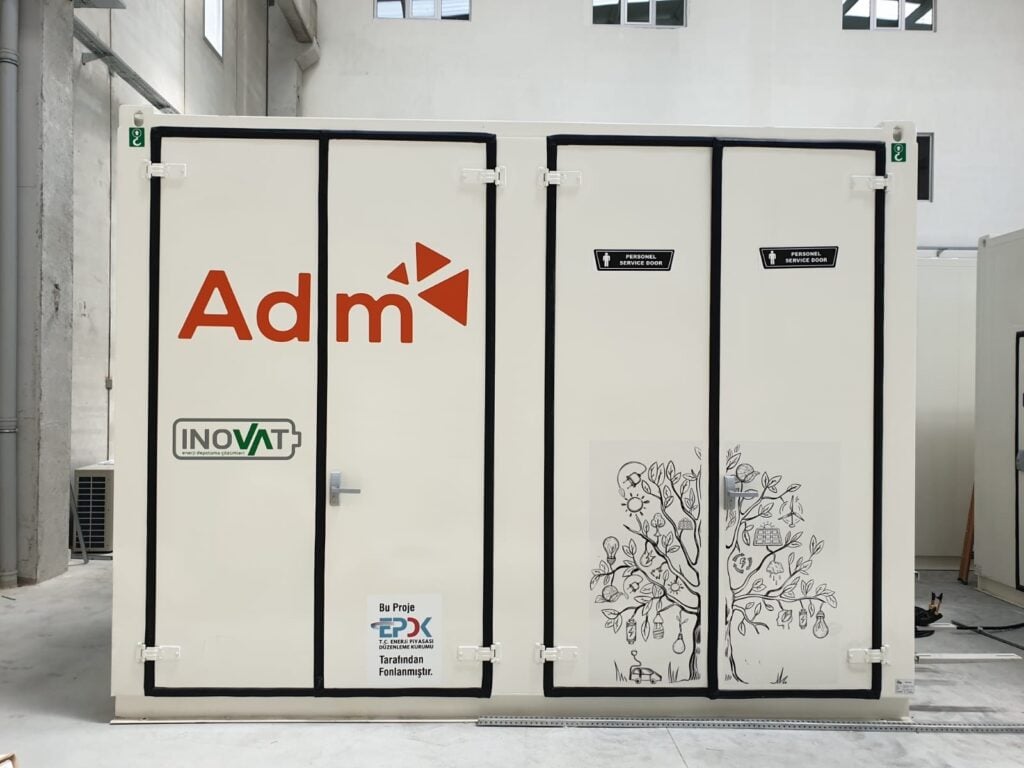
The approach taken by Turkey’s government and regulatory authorities to adapt energy market rules will create “exciting” opportunities for energy storage and renewables.
According to Can Tokcan, a managing partner at Inovat, a Turkey-headquartered energy storage EPC and solutions manufacturer, new legislation is expected to be adopted soon that will drive a major uptick in energy storage capacity.
Enjoy 12 months of exclusive analysis
- Regular insight and analysis of the industry’s biggest developments
- In-depth interviews with the industry’s leading figures
- Annual digital subscription to the PV Tech Power journal
- Discounts on Solar Media’s portfolio of events, in-person and virtual
Back in March, Energy-Storage.news heard from Tokcan that the energy storage market in Turkey was “fully open”. That came after the country’s Energy Market Regulatory Authority (EMRA) ruled in 2021 that energy companies should be permitted to develop energy storage facilities, whether standalone, paired with grid-tied energy generation or for integration with energy consumption – such as at large industrial facilities.
Now, energy laws are being adapted further to accommodate energy storage applications that enable the management and addition of new renewable energy capacity, while mitigating grid capacity constraints.
“Renewable energy is very romantic and nice, but it creates a lot of issues on the grid,” Tokcan told Energy-Storage.news in another interview.
Energy storage is needed to smooth the generation profile of variable solar PV and wind generation, “otherwise, it’s always natural gas or coal fired power plants that are actually accommodating for these fluctuations between supply and demand”.
Developers, investors, or power producers will be able to deploy additional renewable energy capacity, if energy storage with the same nameplate output as the renewable energy facility’s capacity in megawatts is installed.
“As an example, if say you have a storage facility of 10MW electrical on the AC side and you guarantee that you will be installing 10MW of storage, they will be increasing your capacity to 20MW. So, an additional 10MW will be added without any sort of competition for the license,” Tokcan said.
“So instead of having a fixed pricing scheme [for energy storage], the government is providing this incentive for the solar or wind capacity.”
A second new route is that standalone energy storage developers can apply for grid connection capacity at transmission substation level.
Where those previous legislative changes opened up the Turkish market, the newest changes will likely lead to significant development of new renewable energy projects in 2023, Tokcan’s company Inovat believes.
Instead of the government needing to invest in infrastructure to accommodate that additional capacity, it is giving that role to private companies in the form of energy storage deployments that can prevent transformers on the electrical grid from becoming overloaded.
“It should be considered as additional renewable capacity, but also additional [grid] connection capacity as well,” Tokcan said.
New rules will mean new renewable energy can be added
As of July this year, Turkey had 100GW of installed power generation capacity. According to official figures, this included about 31.5GW of hydroelectric power, 25.75GW of natural gas, 20GW of coal with about 11GW of wind and 8GW of solar PV respectively and the remainder comprising geothermal and biomass power.
The main route for adding large-scale renewable energy is through tenders for feed-in tariff (FiT) licenses, through which the government wants to add 10GW of solar and 10GW of wind over 10 years through reverse auctions in which the lowest-cost bids win.
With the country targeting net zero emissions by 2053, those new rule changes for front-of-meter energy storage with renewables could enable quicker and greater progress.
Turkey’s energy law has been updated and a public comment period was recently held, with legislators expected to announce soon how changes will be implemented.
One of the unknowns around that is what sort of energy storage capacity – in megawatt-hours (MWh) – will be required per megawatt of renewable energy, and therefore storage, that is deployed.
Tokcan said it’s likely it will be somewhere between 1.5 and 2 times the megawatt value per installation, but remains to be determined, partly as a result of stakeholder and public consultation.

Turkey’s electric vehicle market and industrial facilities present storage opportunities too
There are also a couple of other changes that Tokcan said also look very positive for Turkey’s energy storage sector.
One of those is in the e-mobility market, where regulators are issuing licenses to operate electric vehicle (EV) charging stations. Roughly 5% to 10% of those will be DC fast charging and the rest AC charging units. As Tokcan points out, DC fast charge stations are likely to require some energy storage to buffer them from the grid.
Another is in the commercial and industrial (C&I) space, Turkey’s so-called “unlicensed” renewable energy market – as opposed to installations with FiT licenses – where businesses install renewable energy, often solar PV on their rooftop or at a separate location on the same distribution network.
Previously, surplus generation could be sold into the grid, which led to many installations being larger than the consumption at the point of use in the factory, processing plant, commercial building or similar.
“That also has changed recently, and now you can only get reimbursed for the amount that you actually consumed,” Can Tokcan said.
“Because if you do not manage this solar generation capacity or generation potential, then of course, it actually starts becoming a burden on the grid. I think now, this has been realised, and that’s why they, the government and necessary institutions, are working more on speeding up the storage applications.”
Inovat itself has a pipeline of about 250MWh, mostly in Turkey but with some projects elsewhere and the company has recently opened a German office to target European opportunities.
Tokcan noted than when we last spoke in March, the Turkey’s installed energy storage base stood at a couple of megawatts. Today, about 1GWh of projects have been proposed and have gone to advanced stages of permitting and Inovat predicts that the new regulatory environment could propel the Turkish market to “about 5GWh or so”.
“I think the outlook is changing for the better, the market is getting bigger,” Tokcan said.






